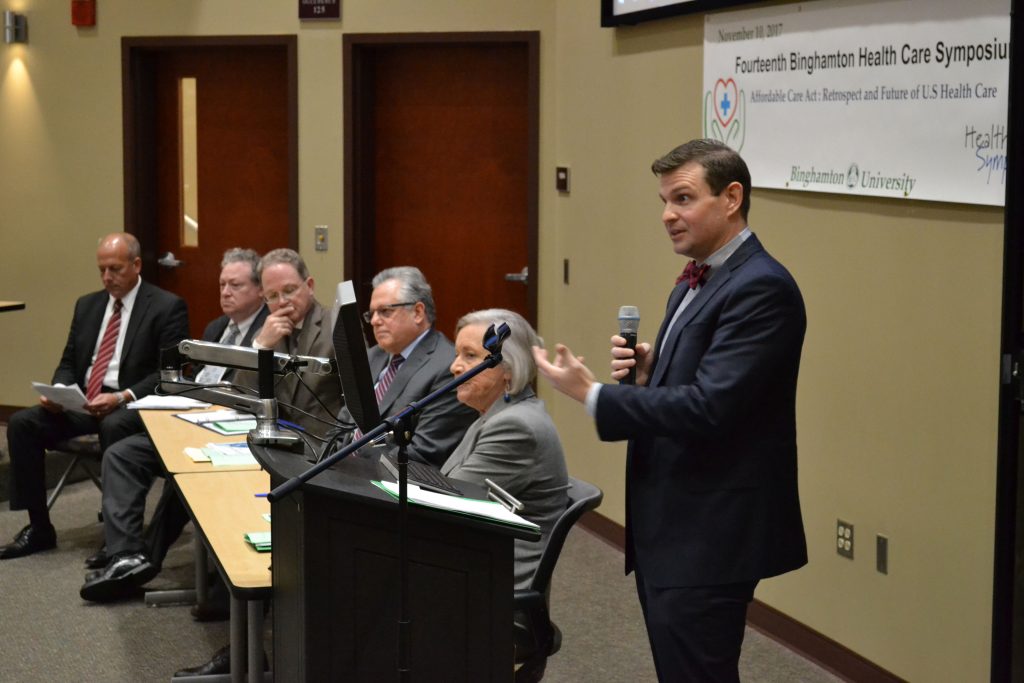
From doctors and hospital administrators to public officials and community members, people from various backgrounds discussed the current landscape of health care at the 14th annual Binghamton Symposium on Health Care Management and Policy last Friday.
At the symposium, which took place at the Center of Excellence in the Innovative Technologies Complex (ITC), guest speakers considered local and national issues through eight panel sessions.
One of the primary health issues discussed was opioid addiction. According to the Centers of Disease Control and Prevention, drug overdose is the leading cause of accidental death in the United States, with 61 percent of those deaths caused by opioids. In Broome County, opioids caused 90 percent of overdose deaths in 2016, according to District Attorney Steve Cornwell’s office.
Matthew Bennett, medical director of United Health Services (UHS) Pain Management and one of the guest speakers at the symposium, said part of the issue is that opioids aren’t effective at treating chronic noncancer pain.
“It interferes with the pain system as a whole,” Bennett said. “It interferes with brain function, it interferes with immune function and it interferes with hormone function.”
According to Bennett, instead of helping people alleviate their pain, opioids can actually make a user’s pain worse.
“Part of the problem is [opioids] can actually worsen pain,” Bennett said. “In my office, I’m frequently recommending people wean off of opioids and when they’re done they say, ‘Huh, that’s funny. I don’t hurt.’”
Organized for the past 15 years by Manas Chatterji, a professor in the BU School of Management, the symposium is designed to allow professionals of all fields to learn from each other about different aspects of health care.
Matthew Ferrara, a junior majoring in accounting, said he hopes people realize that opioids are not the only option to manage pain.
“I would hope they start phasing these things [opioids] out and, as a couple of the speakers mentioned, we do have alternatives to this,” Ferrara said.
According to Bennett, alternatives can be injections, steroids, physical therapy and chiropractic care, all of which help people limit their exposure to opioids.
“We will do some things where we try to ablate nerves or interfere with the function of nerves so they can stop hurting so much,” Bennett said. “We really try to look at the whole person in terms of trying to treat pain.”
David Peppel, executive director of New York state Office of Mental Health facilities at the Greater Binghamton Health Center and the Elmira Psychiatric Center and one of the guest speakers at the symposium, said he found this particularly informative as he was not aware that UHS had pain clinics.
“There were other things available in the community that we weren’t aware of,” Peppel said. “We want to promote our services and let them know what [services] we have as well.”
Other discussions at the symposium touched on the future of the Affordable Care Act and Amazon’s potential entry into the pharmaceutical industry.
Jina Bae, a senior majoring in business administration, said she found attending the symposium important because it spreads greater awareness about the current issues health care professionals are working on.
“Health care is a major consideration for many people,” Bae said. “So I think it’s a good idea to get some more information about health care management.”


